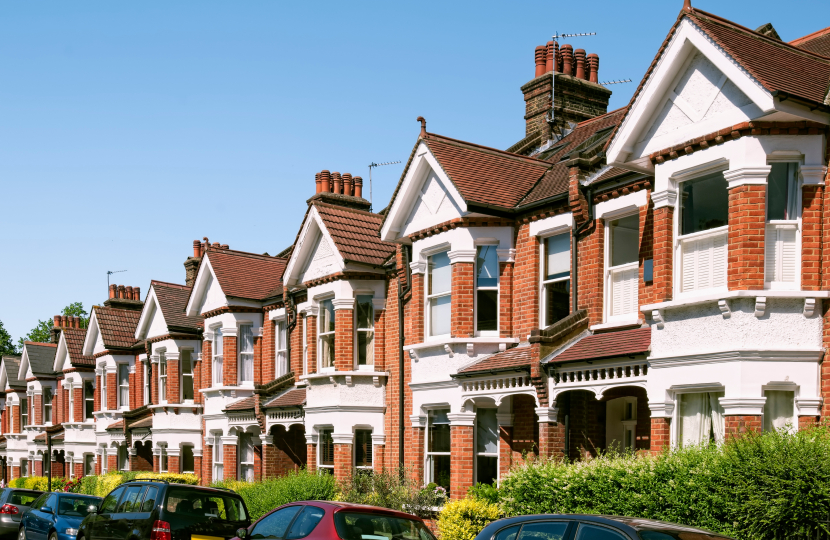
London’s tech start-ups have found an innovative solution to the problem of high housing costs in London – many employ staff on flexible, remote working contracts where employees can be based anywhere in the world. So, you’d like to work from an affordable beachside apartment in Greece? This is a now a reality that can be offered, enabling talented staff to avoid the financial trappings of high housing costs in London.
Sadiq Khan’s failure to deliver an effective home-ownership policy is costing London talent and this loss of talent from our capital needs to be re-thought. Bringing people together usually generates more innovation, which can drive GDP, and evolves diversity and culture. Without ground-breaking policy intervention to reduce housing costs, and to attract workers back to London, Tech City will soon become Tech Ghost Town.
The Bank of England instigated a seventh successive interest rate hike, delivering a 0.5 per cent increase in September to 2.25 per cent – and with the market predicting more aggressive rate increases over the coming months, mortgage rates have rocketed upwards.
A low interest rate environment has been central to enabling many Londoners to purchase their properties since the financial crisis. Having myself started on the property ladder in a shared ownership apartment with a £7,000 deposit, hard work, self-responsibility, perseverance to progress my career, and critically, low interest rates, meant I could eventually afford to purchase a property on the open market.
But I had a rude awakening recently: the low interest rate environment is over. “And your new mortgage payment will be £2,398 per month” my mortgage lender advised. I nearly fell off my seat – that’s a 55 per cent increase in my annual payments and £850 a month more I would have to find, all from my net pay, for exactly the same mortgage amount, to continue living in my London based apartment.
With 25 per cent of London’s homes owned with a mortgage, this is typical of what Londoners are currently facing as they roll off their fixed mortgage rates onto new deals, leaving many Londoners asking themselves:
“Can I still afford to live in my property in a rising interest rate environment?”
Mortgage misery combined with unaffordable housing prices and high rents is here, and it is here to stay for the foreseeable future unless transformational policy intervenes to ease the burden. As Liz Truss promises to “unleash the power of London’s economy”, we must consider how we can affordably house our talented and skilled workers in London and help homeowners meet rising mortgage costs in this new higher interest rate environment.
A solution to increasing accommodation offered in our capital, and to helping existing homeowners manage these astronomical rises in mortgage costs, is through increasing the tax-free threshold of the Rent a Room Scheme. The Government’s Rent a Room Scheme enables households to earn up to £7,500 per year tax-free from letting out furnished accommodation in their homes. Income over this threshold then needs to be declared and will be taxed.
The tax threshold is too low for London, given market rents are substantially higher. This disincentivises homeowners from offering their spare room for rent. SpareRoom reports that the average rent in London in June 2022 was £815 per month. The current £7,500 tax-free cap under the Rent a Room Scheme allows a landlord to earn £625 per month tax-free if a room is let for the full year – this falls significantly short of the London market rent. With London being the most expensive city in Europe to rent, London deserves a special concession when considering property costs and rent-a-room tax-free thresholds.
Raising the tax-free threshold from £7,500 to a level that reflects annual market rents more proportionately in London would have the dual benefit of offering a solution to homeowners to meet rising mortgage repayments through renting their spare rooms without having the burden of additional taxation and filing a tax return and, in doing so, it would create more housing capacity helping a greater number of renters and talented workers access affordable accommodation in London.
The key to the threshold is to make it competitive – high enough for homeowners to see the attraction in renting out a room, but also by keeping the threshold competitive so that rents offered are affordable accommodation.
I put this idea to the London Council panel and to Paul Scully MP, Minister for Local Government, Building Safety and for London, during the London Council ‘Cost of Living Pressures and Levelling Up Ambitions: The London view’ meeting at the Conservative Party Conference. The idea has been welcomed and will be put to the Chancellor, Kwasi Kwarteng, for his views.
Londoners need a policy which offers practical solutions to the problems of a lack of accommodation and rising mortgage rates – and raising the threshold of the Rent-a-Room Scheme tax-free allowance for Londoners offers a solution to many.

